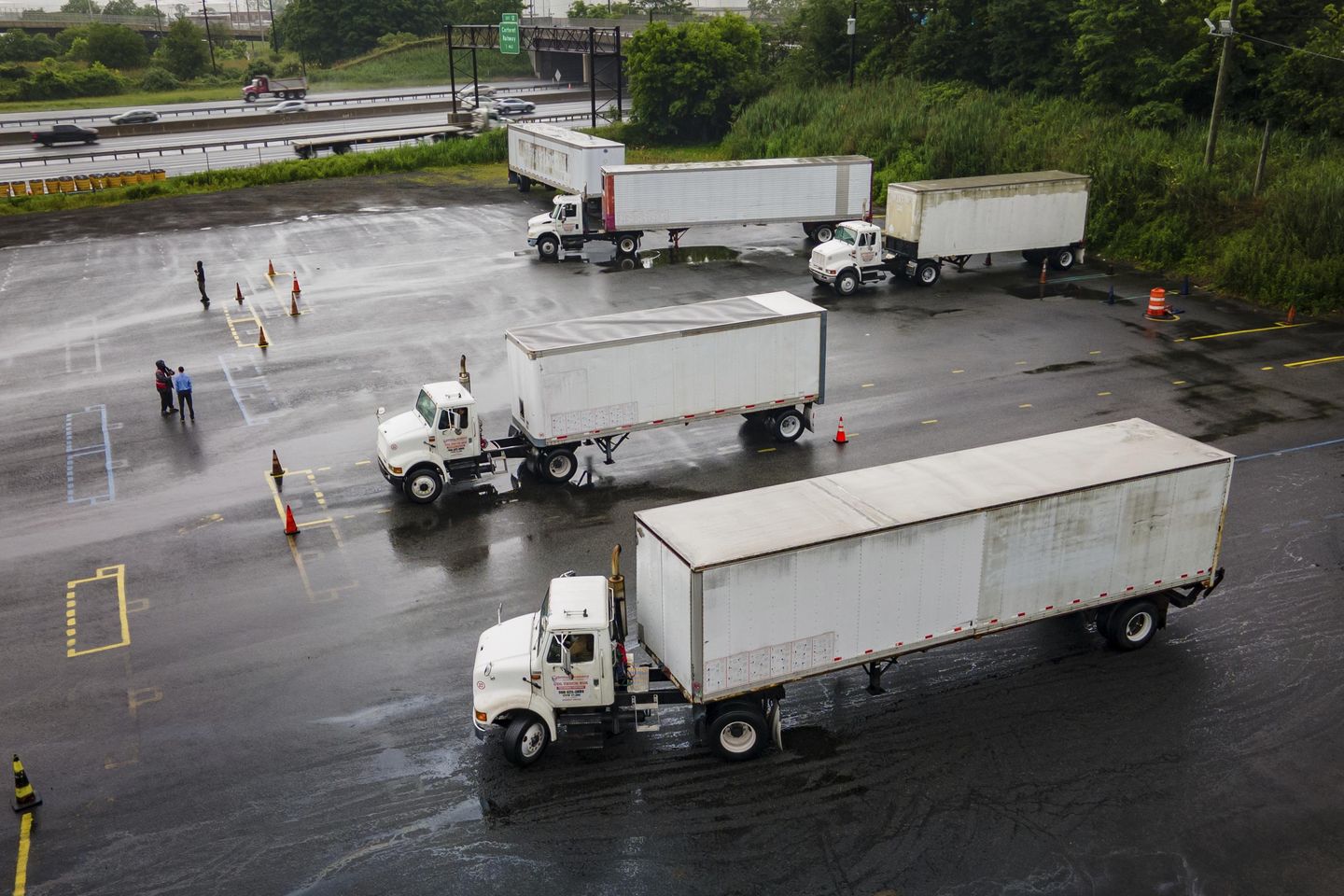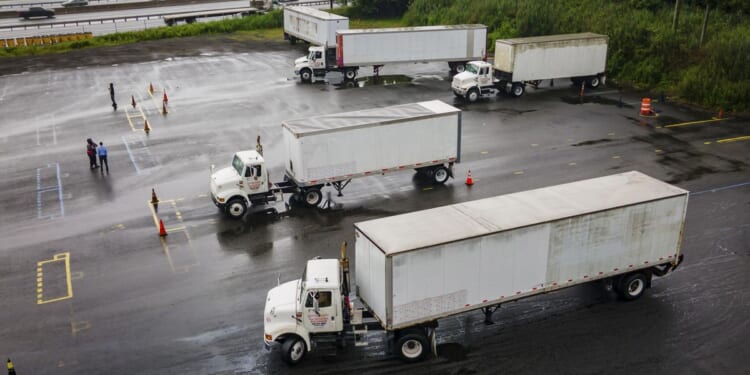
A growing number of U.S. truck drivers say they are fearful of the number of non-English-speaking truck drivers on the road.
English language proficiency was number three among the top ten concerns for U.S. truck drivers, according to the American Transportation Research Institute’s 21st annual survey of top industry issues.
Driver compensation and truck parking were the first and second concerns in the survey, in which truckers accounted for 30% of the survey’s 4,600 respondents.
Truck Drivers’ English proficiency skills climbed the list from last year, when survey respondents had it at number seven as a main concern.
Mike Kuscharski, owner of one of America’s largest refrigerated trucking companies, told The Washington Times that non-English-speaking drivers regularly pull into their warehouses.
“There’ll be truck drivers that come to our warehouse to pick something up. There’ll be two, three truckers, two drivers in a truck, and two of them speak no English, not even a word,” he said.
“One of them speaks broken English, so it’s concerning because we share the roads with these people. Obviously, you see all the videos the truckers are posting.”
Mr. Kuscharski suspects that current non-English speakers are somehow getting help taking the test to get a commercial driver’s license or CDL.
“When I had to take the [CDL] test, it was always in English, multiple choice,” he said. “How are they getting through these tasks? Who’s helping them?”
The Trump administration is cracking down on states that issue commercial driver’s licenses to foreign nationals with little or no English proficiency.
In September, the U.S. Department of Transportation announced an emergency action to drastically restrict who is eligible for a non-domiciled commercial learner’s permit and licenses.
The rule, which went into effect immediately, followed an ongoing nationwide audit by the Federal Motor Carrier Safety Administration.
“The audit has uncovered both a catastrophic pattern of states issuing licenses illegally to foreign drivers, as well as the fact that even if the current regulatory framework is followed, it can fail,” DOT said.
The safety audit found approximately 200,000 non-domiciled CDL holders and approximately 20,000 non-domiciled CLP holders.
Non-domiciled CDL holders will now have to renew their license in person annually, and FMCSA expects 194,000 of them will not be eligible within two years.
The audit also found that one in four non-domiciled CDLs in California were issued improperly, and other issues exist in Colorado, Pennsylvania, South Dakota, Texas and Washington.
Transportation Secretary Sean Duffy plans to withhold $160 million in funding from California and may even remove their ability to issue CDLs entirely.
The move came following a series of fatal crashes this year involving foreign nationals driving semi-trucks who were issued valid CDLs.
The audit found programming errors and weak quality assurance, and insufficient staff training that led to CDLs being issued to drivers who were not eligible and to drivers with expiration dates extending beyond a driver’s legal stay in the U.S,
Republican senators have also proposed new legislation to change how the CDL test is administered.
Under the bill, called the Commercial Motor Vehicle English Proficiency Act, test applicants must prove they can understand and use English.
This includes taking the knowledge portion of the CDL test only in English.
In an executive order, Mr. Trump instructed federal agencies to better enforce existing English language standards for commercial drivers. He also repealed guidance from the Obama administration that had allowed some flexibility for testing in other languages.











